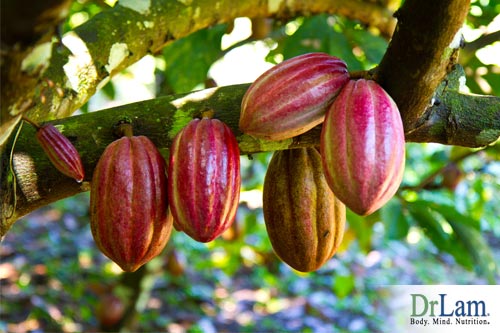 A cup of cocoa isn’t just good for warming you up and helping you go to sleep on a cold winter’s night. This comforting drink may have a huge positive health impact, according to research. Studies indicate that the flavanols in cocoa could even help reverse a decline in memory, especially in older adults who are otherwise in good health.
A cup of cocoa isn’t just good for warming you up and helping you go to sleep on a cold winter’s night. This comforting drink may have a huge positive health impact, according to research. Studies indicate that the flavanols in cocoa could even help reverse a decline in memory, especially in older adults who are otherwise in good health.
Flavanols are a group of compounds commonly found in plants. They are a type of polyphenol and play a role in plant protection. It is believed that when these flavanols are consumed by humans, they exhibit an antioxidant effect, thus aiding your general health.
Although there are many types of flavanols, there are two especially significant ones found in cocoa, namely catechins and tannins. Both of these compounds are also found in tea, particularly green tea. Catechins, especially, are believed to have amazing health benefits. These flavanols in cocoa are also responsible for the bitter taste of pure cocoa. Other great sources of flavanols include red wine, apples, and grapes. Do take care when considering red wine as your flavanol supplier of choice, though, as it could interfere with certain medications and exacerbate some health conditions.
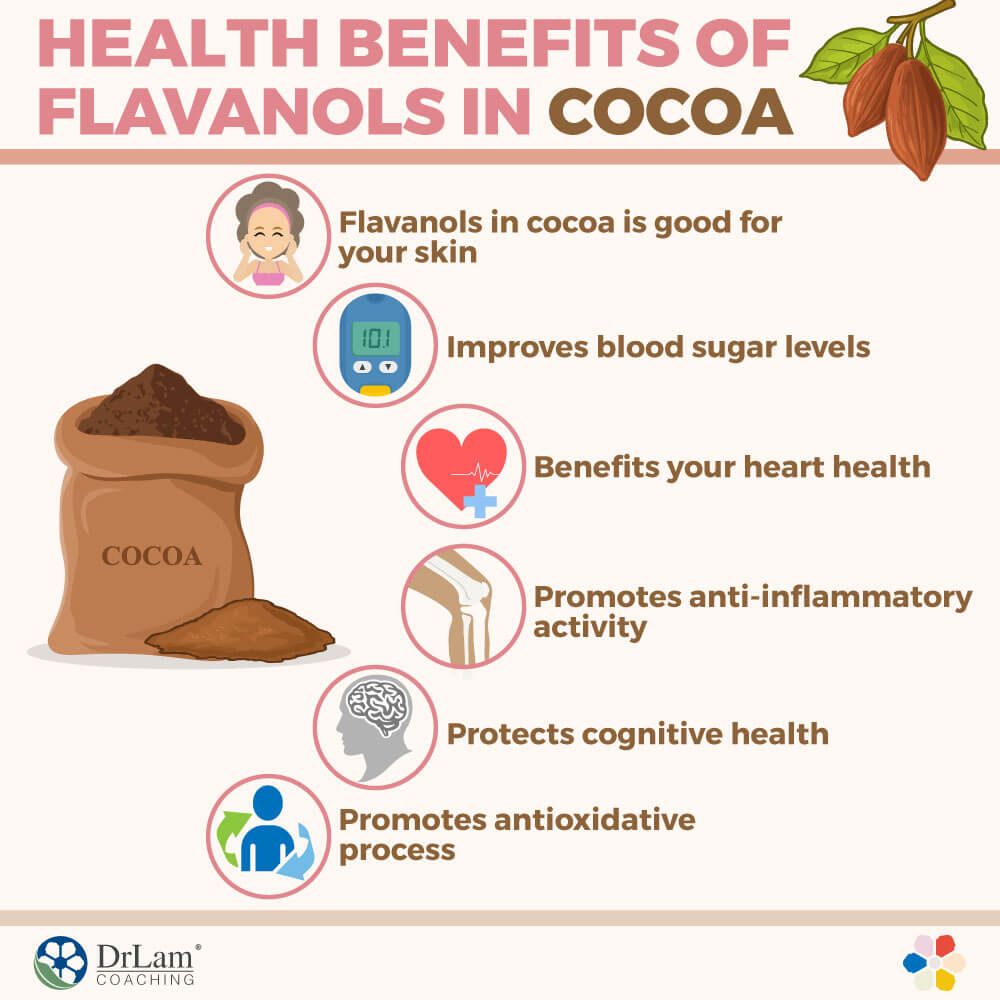
The flavanols in cocoa may have numerous health benefits, according to various studies.
Research indicates that the flavanols in cocoa may be of immense benefit to your skin. For example, a study conducted on a group of middle-aged women showed that those who consumed a cocoa beverage had fewer wrinkles and better skin elasticity than their counterparts in the control group.
Another study that was also conducted on women compared a group of 24 women who drank a cocoa drink for 12 consecutive weeks to a group that did not. The cocoa drinkers showed improved blood flow to their skin and enhancements in skin hydration and thickness. The thinning of skin is one of the main signs of aging.
Lastly, the flavanols in cocoa may help protect your skin from sun damage, as is suggested in a study conducted over a 12 week period. A study conducted on a group of 30 people indicated that those who had consumed a chocolate high in flavanols for the period were able to expose themselves to UV light for twice the time they could previously before any reddening of their skin occurred.
However, although these studies show positive results, this does not mean you should summarily stop using any sun protection. Protecting your skin, especially your face, from the sun is one of the main methods of keeping youthful skin for longer, as well as preventing skin cancer.
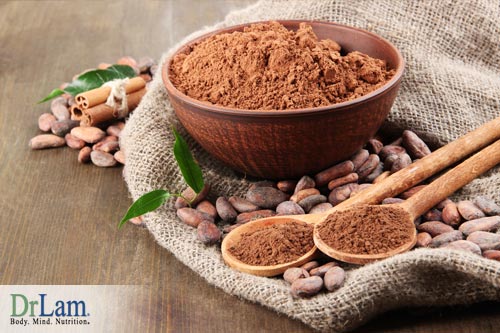 Studies suggest that the flavanols in cocoa and dark chocolate may be of benefit to those with type-2 diabetes. The ingestion of flavanols may improve insulin resistance, blood pressure, and lipid profile. Improved insulin resistance, by implication, points toward healthier blood sugar levels. At the same time, by improving your blood sugar levels, you also help manage your appetite and cravings while your energy levels and mood also improve.
Studies suggest that the flavanols in cocoa and dark chocolate may be of benefit to those with type-2 diabetes. The ingestion of flavanols may improve insulin resistance, blood pressure, and lipid profile. Improved insulin resistance, by implication, points toward healthier blood sugar levels. At the same time, by improving your blood sugar levels, you also help manage your appetite and cravings while your energy levels and mood also improve.
Although one may be tempted to start drinking or eating copious amounts of cocoa or chocolate, however, remember that the increase in your sugar intake could have negative consequences to your health. While dark chocolate may have significantly lower sugar content, one needs to be wary about the amount of sugar you add to your hot cocoa. Too much sugar added to something beneficial to your health may just defeat the purpose. Consider other sweetening options that are less likely to have any of these negative effects.
There seems to be a growing body of research suggesting that flavanols in cocoa may have a positive impact with regards to heart health. One such study indicates that flavanols influence platelet action, thus contributing to the prevention of clot formation.
Flavanols may also play a role in the prevention of age-related hypertension, according to other research. Furthermore, there are indications that the flavanols in cocoa may help reduce inflammation and possibly even reduce cholesterol. These are all factors can be detrimental to your heart health.
The flavanols in cocoa may promote anti-inflammatory activity and thus help to balance your immune system. They may also play a role in the prevention of certain inflammatory conditions, such as arthritis, heart conditions (as has been mentioned), and irritable bowel disease.
Furthermore, these flavanols may help prevent the immune system from going into a state of imbalance, which may result in autoimmune conditions and allergies. Their strong anti-inflammatory and antioxidant effects on the body may also help with cancer prevention.
The flavanols in cocoa may improve brain function by improving blood flow to this area, improving your insulin sensitivity, and encouraging new brain cells to grow. Interestingly, one of the contributing factors to the development of dementia is impaired insulin sensitivity.
Most people, as they grow older, tend to see some degree of cognitive decline. They might misplace things and forget where they put them or even start forgetting names. While this forgetfulness may not impact your quality of life much, the problems it causes may increase as you get older. Studies indicate that the flavanols in cocoa may help protect, and in some cases even improve, your cognitive abilities as you age.
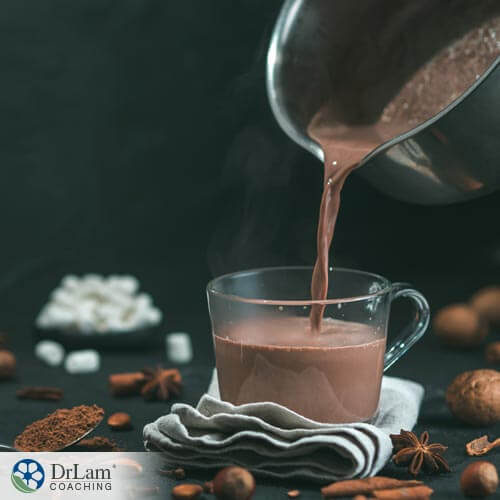 In a study of 37 healthy volunteers between the ages of 50 and 69, the group who had taken large quantities of flavanol for the trial period showed significant improvements in their cognitive function as opposed to the control group. Although larger trials are recommended, the results do indeed seem positive.
In a study of 37 healthy volunteers between the ages of 50 and 69, the group who had taken large quantities of flavanol for the trial period showed significant improvements in their cognitive function as opposed to the control group. Although larger trials are recommended, the results do indeed seem positive.
Other, similar research done in Italy tested a group of 90 healthy 51-85-year-old people. Their memories and thinking skills were deemed good for their ages. The findings were similar to that of the study mentioned above, with those taking flavanols showing a marked improvement with regards to cognitive function after the trial period.
The last study worth mentioning was conducted in 2012 on a group of middle-aged individuals suffering from mild cognitive impairment. Not only did this study note an improved thinking ability after the trial period, but remarked that there was also an improvement in their blood pressure and insulin resistance.
Antioxidants, such as vitamin C, directly act on cells by donating electrons to any free radicals encountered, thus preventing them from doing damage to your body. Flavanols in cocoa, however, may have a mildly toxic effect on your body that actually stimulates the production of antioxidants. So while the flavanols in cocoa do not possess antioxidative properties of their own, they promote the antioxidative process.
This is especially important if chronic stress is a factor in your life and you are seeking ways to reduce the amount of stress on your body.
Stress seems to be synonymous with the lifestyles we lead these days. When your body experiences stress, the first reaction is from the NeuroEndoMetabolic Stress Response, with an increase in cortisol and adrenaline production. Your body is alert, ready to take action, with your heart rate increased, your muscles tense, and every bodily function not deemed necessary for short-term survival either reduced or put on hold. Once your feelings of stress pass, things return to normal.
Long-term stress, however, can have a major impact on your whole body and result in a common condition known as adrenal fatigue. Different systems are affected, with a myriad of different symptoms presenting themselves that may seem totally unrelated to each other. Examples of these symptoms include:
Many symptoms associated with low flavanol levels seem to be encountered in those who have adrenal fatigue, thus suggesting that that the flavanols in cocoa may contribute towards addressing them. When coupled with an overall system for addressing chronic stress, the flavanols in cocoa may make a healthy addition to your plans to de-stress.
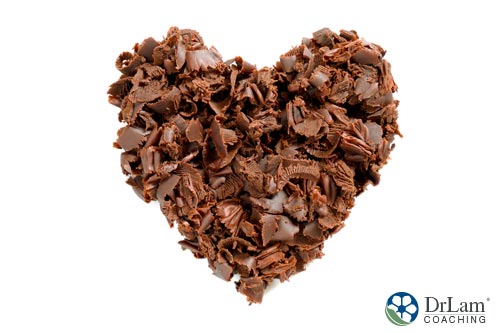 From skin health to protecting against cognitive decline, from reducing inflammation to stimulating antioxidant activity, flavanols in cocoa can have a huge benefit on your health. However, like most good things, it’s always best to have cocoa in moderation.
From skin health to protecting against cognitive decline, from reducing inflammation to stimulating antioxidant activity, flavanols in cocoa can have a huge benefit on your health. However, like most good things, it’s always best to have cocoa in moderation.
Before drinking copious amounts of cocoa, keep in mind that it may be best if you seek out healthier, low-sugar ways to make it. If considering flavanol supplements, please first consult with a certified healthcare practitioner as to the necessity and dosage. Those who have adrenal fatigue should never consider taking any supplements without proper consultation, as different supplements may negatively interact with each other as well as with other medications.
Cocoa certainly can’t solve all your problems, but it is certainly a warm and tasty way to de-stress and take care of your health.
© Copyright 2015-2019 Michael Lam, M.D. All Rights Reserved.
The cause of adrenal fatigue differs from person to person. While the flavanols in cocoa may not cure the condition, they do address certain issues that are characteristic of most adrenal fatigue sufferers. In moderation, cocoa could be a good addition to an adrenal fatigue support plan.
